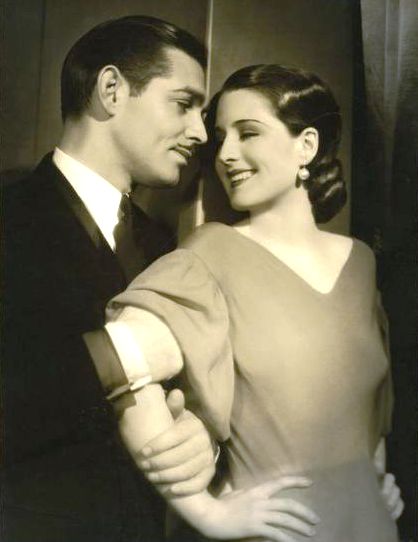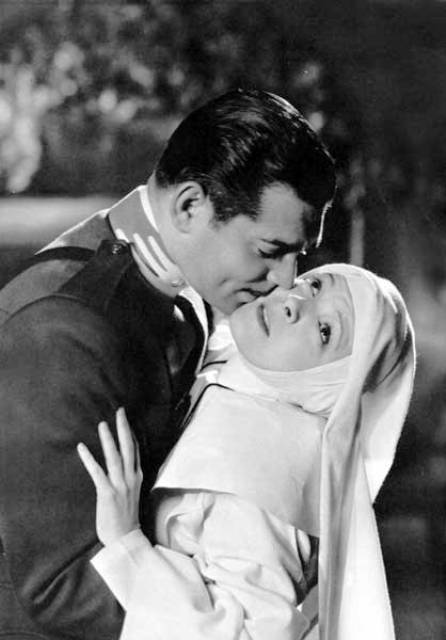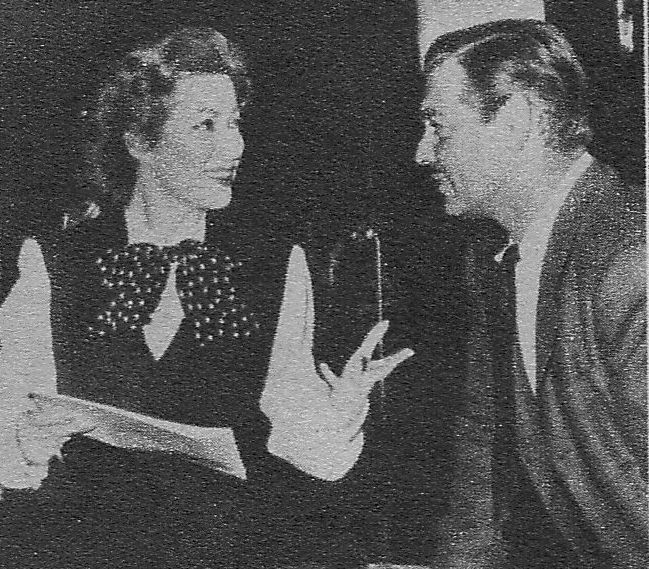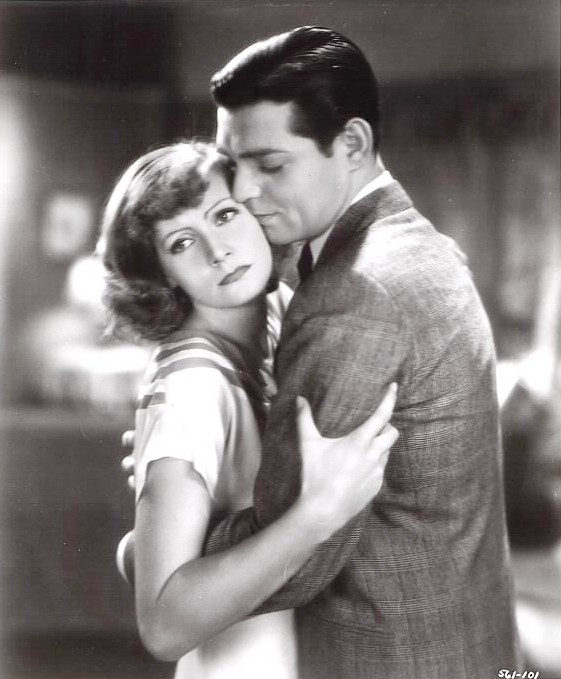Nutshell Reviews: Strange Interlude (1932) and The White Sister (1933)
In a Nutshell: Strange Interlude (1932)
Directed by: Robert Z. Leonard
Co-stars: Norma Shearer, Alexander Kirkland, Ralph Morgan
Synopsis: Gable is Dr. Ned Darrell, who has fallen in love with Nina Leeds (Shearer), a free-spirited young woman who is mourning the loss of her love in World War I. Also in love with her are family friend Charlie (Morgan) and Sam (Kirkland), a friend of her deceased boyfriend. Sam proposes to Nina and even though she is still heartbroken, she accepts and decides to move on with her life. Right after their marriage, Sam’s mother (May Robson) tells Nina that she and Sam must never have a child because insanity runs rampant in Sam’s father’s side of the family. She recommends that Nina give Sam a child fathered by another man to keep him happy and never let him know the truth. Devastated by the news, Nina turns to Ned for advice and Ned agrees that she must give Sam a child to make him happy. Ned volunteers to sire the child and soon they are in a passionate affair behind Sam’s back. A boy is born to Nina and Sam never suspects that the child is not his. Jealous Charlie watches this all unfold, pining for Nina all the while. Years pass and Nina and Ned constantly struggle with their love for each other and whether or not to tell Sam the truth.
Best Gable Quote: “I couldn’t forget you. Other women only made me love you more. It was always you in my arms.”
Fun Fact: This is the first Gable film to feature him with a mustache, although it was a fake one applied by the makeup department to make him look older.
My Verdict: This one is soapy, soapy, soapy. The “thoughts” of the characters being heard while they stand there with blank looks on their faces becomes very tiresome before you’re halfway through the movie. The more times I see it, the more I can’t stand Norma Shearer’s selfish Nina, who destroys many lives in her self- righteous path. Having a child by another man so that her husband’s family gene of insanity won’t be passed down is an absolutely ludicrous scenario nowadays and it seems silly even portrayed in the film. It is not a bad film overall, it just comes across as extremely dated. Worth it to see Clark in his first onscreen mustache.
It was Movie of the Month in March 2012.
In a Nutshell: The White Sister (1933)
Directed by: Victor Fleming
Co-stars: Helen Hayes, Lewis Stone
Synopsis: Gable is Giovanni Severa, a pilot in the Italian Air Force. He meets Angela (Hayes), an aristocratic daughter of a prince (Stone). Her father opposes their romance but they steal moments together anyway. When Giovanni goes off to fight in the 1914-1918 war, Angela waits for him so they can get married. When she learns he has died in combat, she knows she will never love again and joins a convent.
Best Gable Quote: “I’m fighting for our love. If it means disgrace then at least we have each other!” (GROAN)
Fun Fact: The film was essentially a remake of a remake, as it had been filmed twice before, in 1923 (with Lillian Gish and Ronald Colman) and in 1915.
My Verdict: I generally like romantic movies, but this one is Valentine’s Day with roses and chocolates and dinner on top of the Eiffel Tower with jewelry and violinists. It’s just too sugary sweet. It seems so odd that rough-and-tumble man’s man Victor Fleming directed this. Clark is reduced to a quivering, lovelorn sack and he looks a bit dopey with the too-thin mustache and oddly boxy uniform. I respect Helen Hayes as an actress but she is badly paired with Clark here. She is only a few months older than him, but for some reason she comes across extremely matronly, like he’s making kissy faces at his mother. I have only seen this movie twice because, quite simply, I just don’t like it!






One Comment
P. Lesperance
Actually, A FREE SOUL was their first movie. And, IDIOT’s DELIGHT was their last.